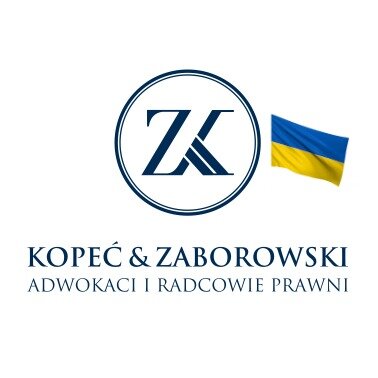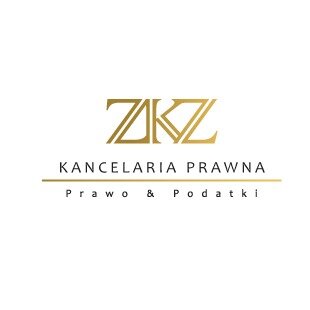Best Debt Capital Markets Lawyers in Poland
Share your needs with us, get contacted by law firms.
Free. Takes 2 min.
Or refine your search by selecting a city:
List of the best lawyers in Poland
About Debt Capital Markets Law in Poland
Debt Capital Markets (DCM) in Poland refer to the broad framework through which entities such as companies, banks, and the government raise capital by issuing debt instruments to investors, typically in the form of bonds, medium-term notes, and related securities. This sector plays a crucial role in the Polish economy, providing a vital channel for funding outside of traditional loans. Financial instruments offered through the DCM are traded both domestically and internationally, and they must adhere to a specific legal, regulatory, and compliance landscape unique to Poland.
Why You May Need a Lawyer
Engaging in Debt Capital Markets transactions can be complex, often involving stringent disclosure requirements, regulatory approvals, and negotiation of intricate contractual terms. You may need a lawyer if you are planning to issue or invest in debt securities, are a financial institution structuring DCM products, or require compliance advice. Common situations include:
- Issuing corporate or municipal bonds
- Listing debt securities on the Warsaw Stock Exchange (WSE) or Catalyst
- Restructuring existing debt instruments
- Ensuring regulatory compliance with Polish and EU frameworks
- Handling cross-border debt issues or investments
- Disputes regarding the interpretation of bond terms and investor rights
- Advising on tax implications of DCM transactions
Local Laws Overview
The core legal environment for Debt Capital Markets in Poland is shaped by several key statutes and regulations. The most relevant laws include:
- Polish Commercial Companies Code - Governs the ability of companies to issue debt securities
- Bond Act (Ustawa o obligacjach) - Regulates issuance, trading, and redemption of bonds
- Act on Public Offering, Conditions Governing the Introduction of Financial Instruments to Organized Trading, and Public Companies - Outlines disclosure standards and offers investor protection
- Polish Financial Supervision Authority (KNF) regulations - Provides oversight, licensing, and compliance checks
- Warsaw Stock Exchange and Catalyst rules - Regulate admission and trading of debt securities
Additionally, as a member of the European Union, Poland applies relevant EU regulations such as the Prospectus Regulation and the Markets in Financial Instruments Directive (MiFID II). Debt issuance and trading may therefore require legal advice on both Polish and European legal standards.
Frequently Asked Questions
What is a bond in the context of Polish Debt Capital Markets?
A bond is a debt security that entities issue to raise money from investors. The issuer promises to pay back the face value plus interest at a future date. In Poland, bonds can be issued by companies, municipalities, or the state.
Who regulates Debt Capital Markets in Poland?
The primary regulatory authority is the Polish Financial Supervision Authority (Komisja Nadzoru Finansowego - KNF), which oversees capital markets, including DCM activities.
Can foreign entities issue bonds in Poland?
Yes, foreign entities can issue bonds in Poland, but they must comply with local laws, regulatory standards, and possibly obtain approvals from the KNF or other authorities as applicable.
What are the steps to issue bonds in Poland?
Issuing bonds typically involves preparing a bond resolution, drafting the bond terms, registering the bonds, possibly publishing a prospectus (especially for public offers), receiving regulatory approvals, and listing the bonds on a marketplace like Catalyst, if applicable.
Is a prospectus always required for bond issues?
A prospectus is generally required if the bonds are offered publicly or listed on a stock exchange, subject to certain exemptions. Private placements and certain exempted offers may not require a full prospectus.
What is the Catalyst Market?
Catalyst is a specialized market, operated by the Warsaw Stock Exchange, dedicated to the trading of debt instruments, such as bonds. It allows for both public and private issues.
What are typical legal risks involved in Debt Capital Markets?
Legal risks include failure to comply with disclosure obligations, improper structuring of bond terms, tax issues, disputes over covenant interpretation, and regulatory penalties for non-compliance.
Are there tax considerations in Polish DCM transactions?
Yes, tax treatment of interest and capital gains, as well as withholding tax for foreign investors, are important considerations. Issues should be analyzed both from the issuer and the investor perspectives.
How are investor rights protected in Polish DCM?
Investor protections are provided under Polish law through mandatory disclosure, registration procedures, and rights to enforce payment terms or demand early redemption in the event of defaults.
Can bonds issued in Poland be governed by foreign law?
While most local multinational and sovereign bond issues are governed by Polish law, parties can, under certain conditions, choose foreign law, especially for international placements, subject to regulatory consent.
Additional Resources
To further educate yourself or seek regulatory guidance, consider these key resources and organizations:
- Polish Financial Supervision Authority (KNF) - Regulatory oversight, guidelines, and market supervision
- Warsaw Stock Exchange (WSE) and Catalyst Market - Information about listing and trading bonds
- Ministry of Finance, Republic of Poland - Official legislative texts and policy updates
- Polish Bank Association - Advice and education for financial institutions
- Law libraries and university faculty of law portals - Access to legal commentary and academic materials
Next Steps
If you are considering raising capital or investing through the Debt Capital Markets in Poland, the best course of action is to consult a qualified legal professional with experience in this sector. Start by clearly identifying your goals and assembling all relevant financial and business documentation. Research and prepare specific questions for your lawyer. Contact a reputable law firm specializing in capital markets or financial regulations in Poland. An experienced legal advisor can help you navigate compliance, documentation, regulatory approvals, and negotiations. Do not hesitate to request references or information about their experience in the Polish DCM market to ensure you receive the best guidance tailored to your needs.
Lawzana helps you find the best lawyers and law firms in Poland through a curated and pre-screened list of qualified legal professionals. Our platform offers rankings and detailed profiles of attorneys and law firms, allowing you to compare based on practice areas, including Debt Capital Markets, experience, and client feedback.
Each profile includes a description of the firm's areas of practice, client reviews, team members and partners, year of establishment, spoken languages, office locations, contact information, social media presence, and any published articles or resources. Most firms on our platform speak English and are experienced in both local and international legal matters.
Get a quote from top-rated law firms in Poland — quickly, securely, and without unnecessary hassle.
Disclaimer:
The information provided on this page is for general informational purposes only and does not constitute legal advice. While we strive to ensure the accuracy and relevance of the content, legal information may change over time, and interpretations of the law can vary. You should always consult with a qualified legal professional for advice specific to your situation.
We disclaim all liability for actions taken or not taken based on the content of this page. If you believe any information is incorrect or outdated, please contact us, and we will review and update it where appropriate.
Browse debt capital markets law firms by city in Poland
Refine your search by selecting a city.

















